TOKYO: Saudi Arabia is keen to maintain momentum in strengthening bilateral relations with Japan and is making efforts to stabilize energy supplies in the medium and long term, according to Minister of Foreign Affairs Prince Faisal bin Farhan Al-Saud.
Participating in an Arab News Japan roundtable discussion on Tuesday in Tokyo, he touched on issues ranging from oil (of which Japan is a major consumer) and Middle East security to tourism in Saudi Arabia, while paying tribute to the slain former Japanese prime minister, Shinzo Abe.

Saudi Minister of Foreign Affairs Prince Faisal bin Farhan participates in an Arab News Japan roundtable discussion on Tuesday in Tokyo. (Supplied)
“No doubt the pandemic has had an impact on all of us, certainly as countries, on our economies and our ability to move our agendas forward,” Prince Faisal said.
“But also, of course, on a personal level, we have all been very much impacted. One of the impacts of the pandemic was a lack of communication on a global scale, a lack of contacts, and that has impacted our global partnership somewhat.”
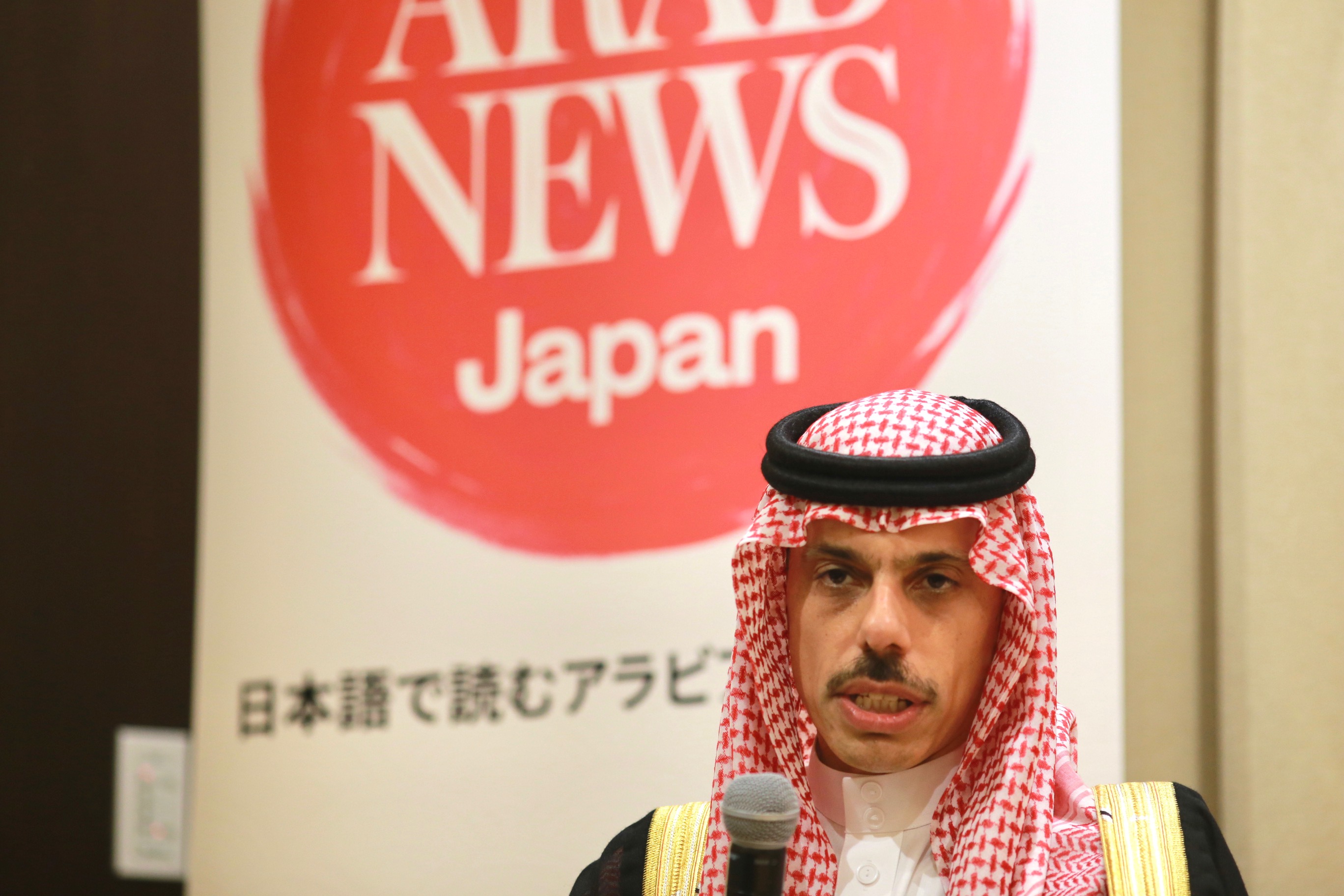
Saudi Minister of Foreign Affairs Prince Faisal bin Farhan participates in an Arab News Japan roundtable discussion on Tuesday in Tokyo. (Supplied)
He added: “One of the reasons I am here is to make sure that the momentum that we had before we came into the pandemic, and the relationship with Japan, can be maintained. And we’ve been working, even before this visit, with our colleagues in the Japanese government, to make sure that all of those agenda items that we’ve been working on for the past many years continue, and now we are focused on the future.”
Prince Faisal began his remarks at the discussion by mourning the death of Abe, who was fatally shot while giving a speech at a political campaign event in the Japanese city of Nara on July 8.
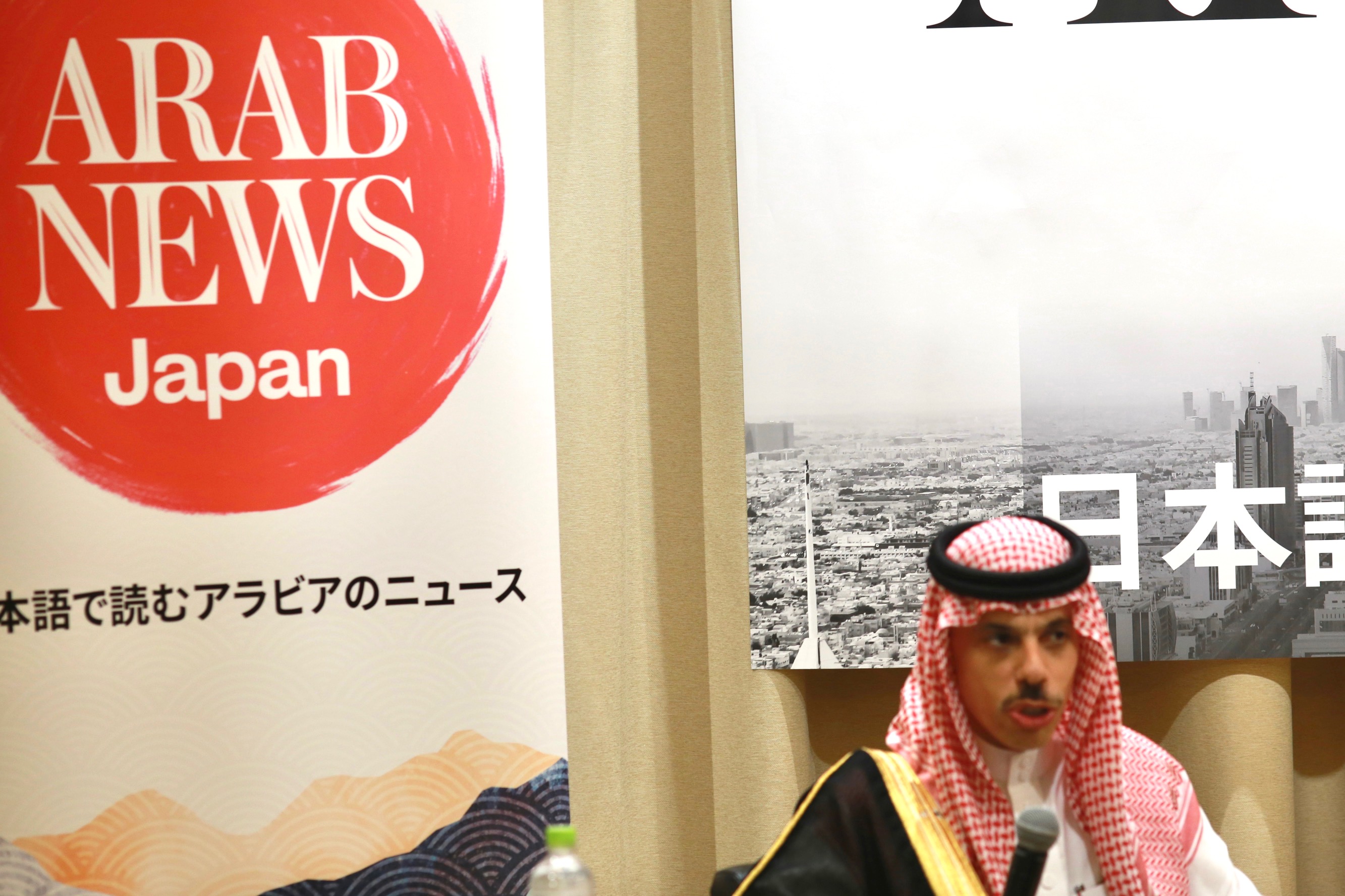
Saudi Minister of Foreign Affairs Prince Faisal bin Farhan participates in an Arab News Japan roundtable discussion on Tuesday in Tokyo. (Supplied)
“It was an extreme tragedy,” he said at the event in Foreign Correspondents’ Club of Japan, where Arab News Japan was launched two-and-a-half years ago.
“Shinzo Abe was perceived by us in the Kingdom as really a statesman of the highest caliber and someone who had a tremendous impact on the global stage.
“We saw him as very much a friend of the Kingdom and someone who was instrumental in strengthening the strategic relationship between our two countries. So, we were very saddened and shocked by his murder. I, of course, communicated our leadership’s condolences to the (Japanese) prime minister.”
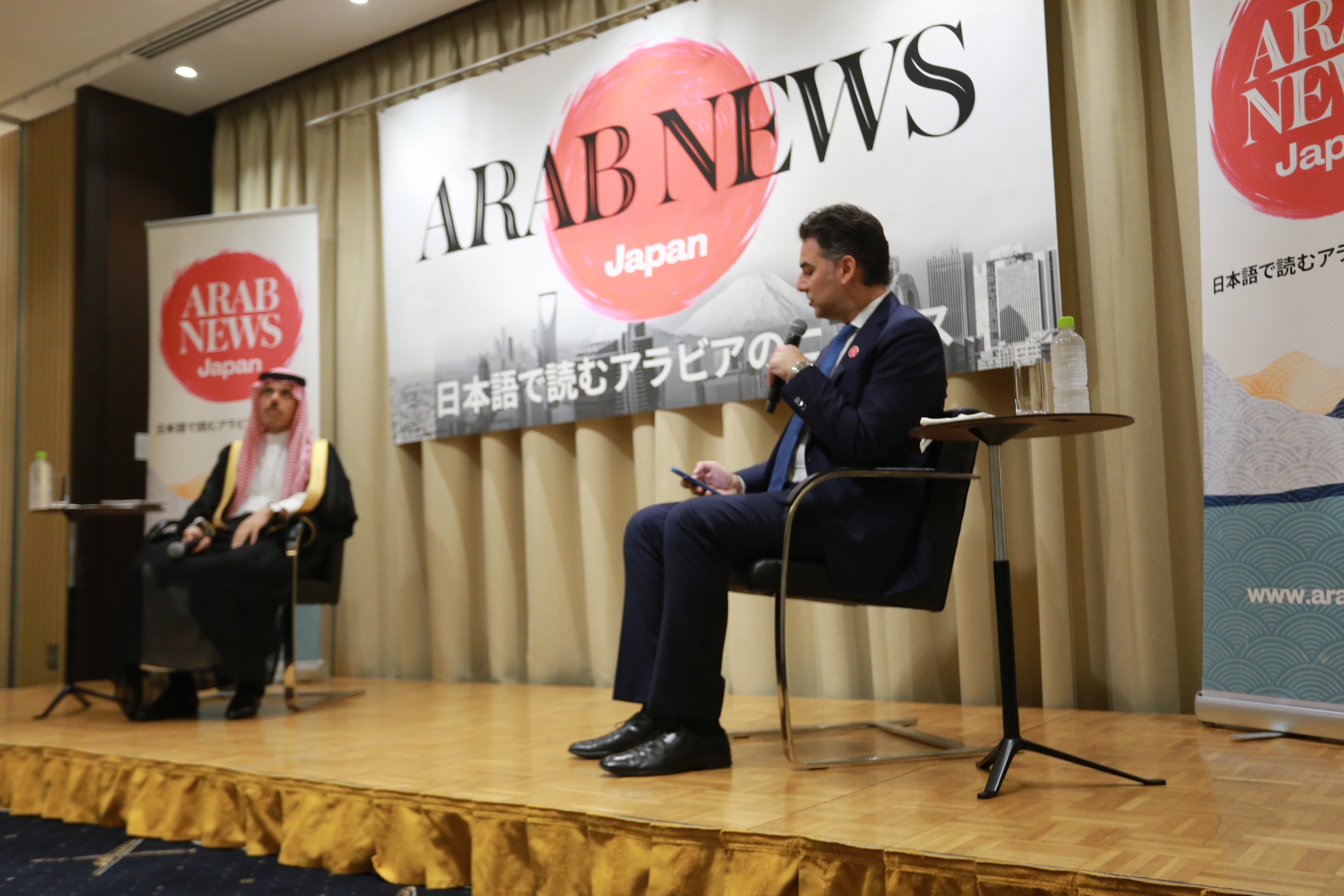
Saudi Minister of Foreign Affairs Prince Faisal bin Farhan participates in an Arab News Japan roundtable discussion on Tuesday in Tokyo. (Supplied)
Moving on to the topic of the recent visit of US President Joe Biden to Saudi Arabia, Prince Faisal reiterated the Kingdom’s commitment both to stabilizing global energy markets and transitioning to renewable energy.
“We are focused on maintaining stability in the oil markets through OPEC+, and the dialogue within OPEC+ is quite robust and is responding as needed to the requirements of the market,” he said, referring to the informal alliance of 24 oil-producing nations, of which 10, including Russia, are not members of OPEC.
“One of the challenges that we addressed here, and we continue to address with our partners globally, is the fact that we need to make sure that we have a balanced approach to energy transition. So, we are now in an energy transition, to a renewable economy and to carbon net zero.”
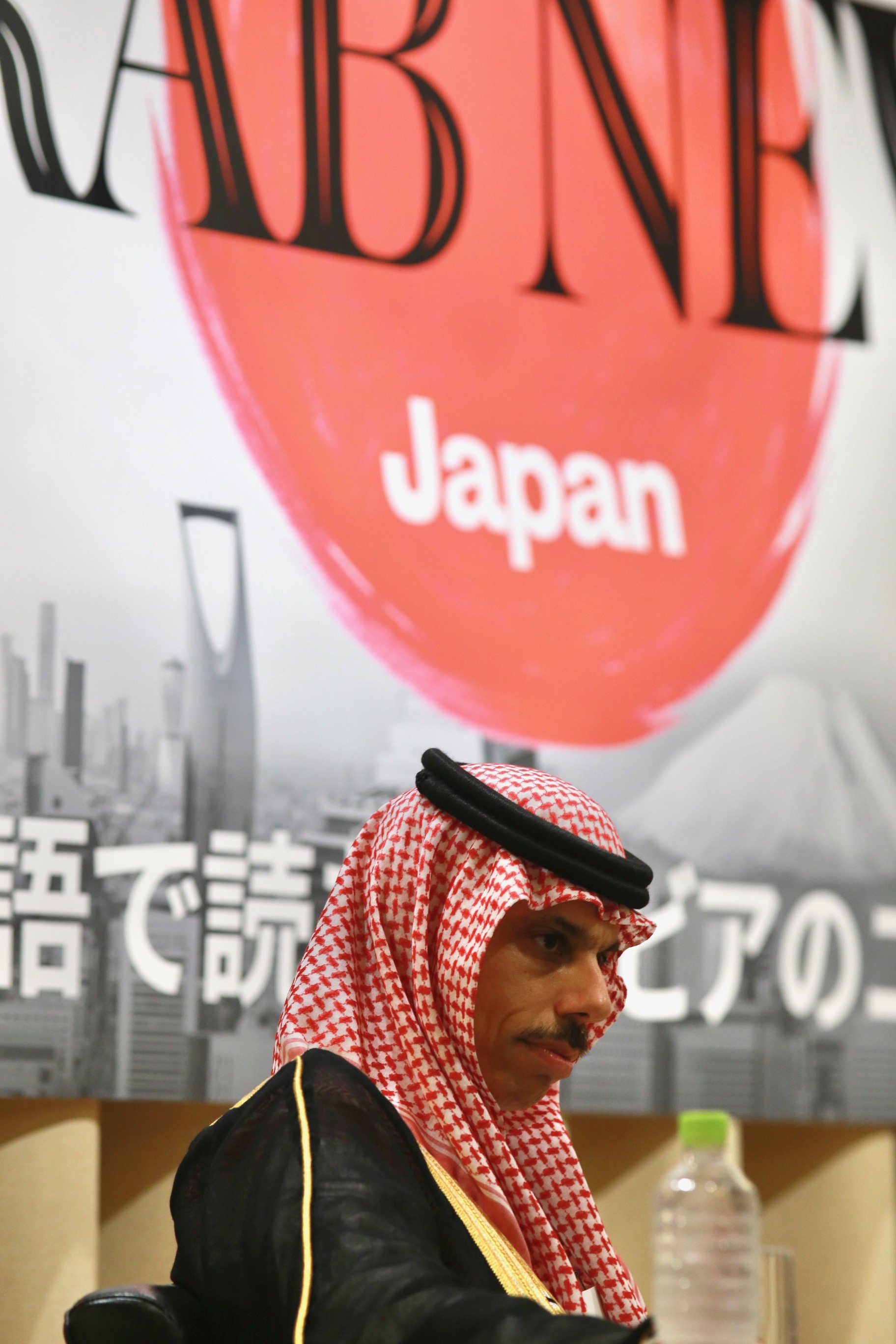
Saudi Minister of Foreign Affairs Prince Faisal bin Farhan participates in an Arab News Japan roundtable discussion on Tuesday in Tokyo. (Supplied)
Earlier in the day, Prince Faisal met his Japanese counterpart, Hayashi Yoshimasa, to discuss cooperative efforts to stabilize the global oil market, as the world continues to be gripped by a fuel crisis caused by a number of factors.
“There needs to be investment in hydrocarbons so that economies have the necessary resources and the necessary access to energy, so that they can continue to perform and that we don’t face an economic shock,” Prince Faisal told the roundtable meeting.
He referenced parts of Crown Prince Mohammed bin Salman’s recent speech at the Jeddah Security and Development Summit, which was attended by leaders and representatives of the Gulf Cooperation Council countries, the US, Egypt, Iraq and Jordan, and was held in the Saudi port city on July 16.
“(The crown prince) pointed out that the Kingdom is working towards a capacity of 13 million barrels. That is, however, the maximum capacity we are going to be able to reach,” Prince Faisal said.
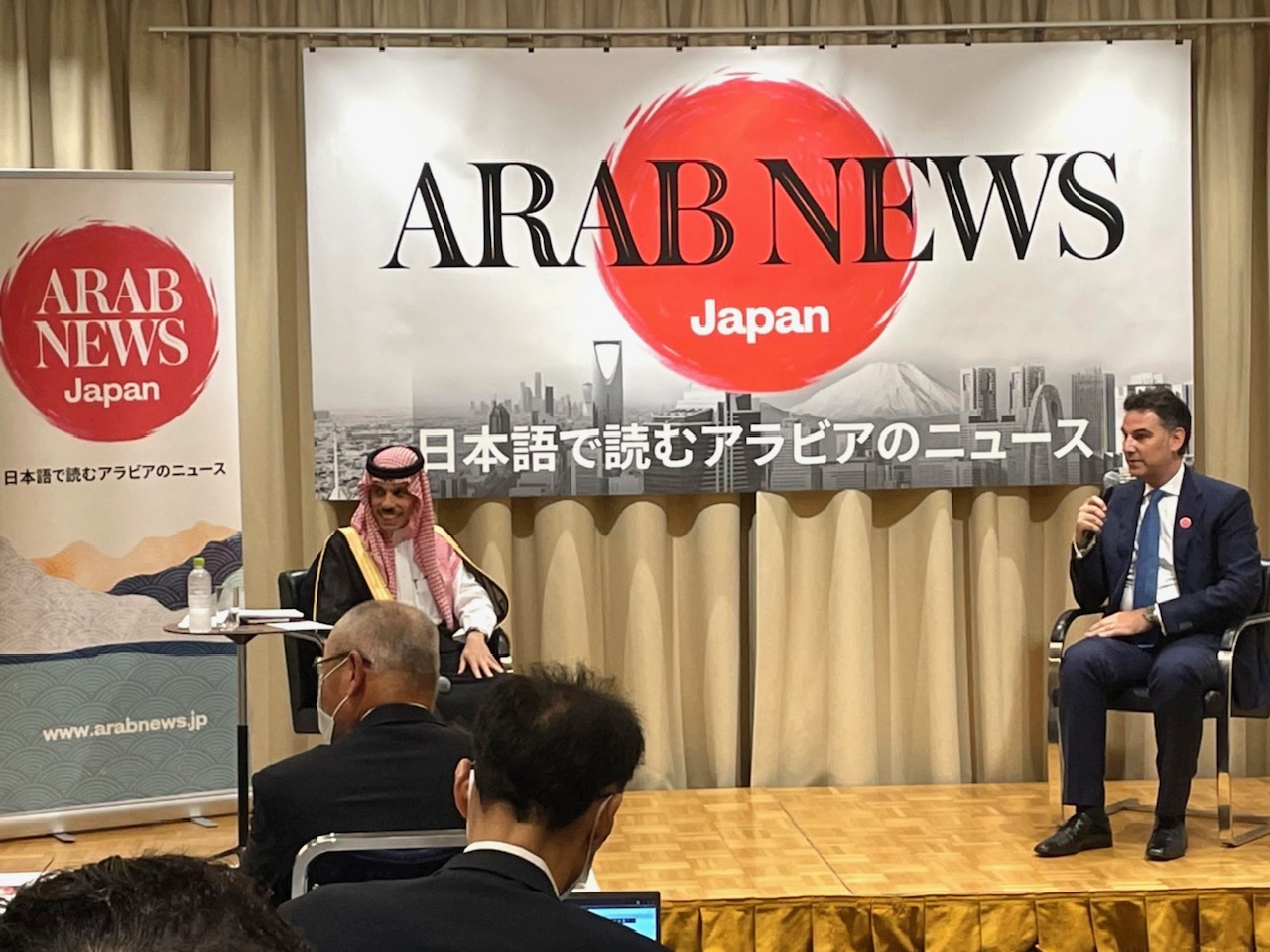
Saudi Minister of Foreign Affairs Prince Faisal bin Farhan participates in an Arab News Japan roundtable discussion on Tuesday in Tokyo. (Supplied)
“This means that other countries also need to invest in their capacity to produce hydrocarbons in the interim while we’re working towards deploying renewable energy.”
He stressed that Saudi Arabia was making efforts to secure a stable supply of oil in the medium and long term, and that it would also work with OPEC+ partners to make sure that global oil needs were addressed.
“As of today, we don’t see a lack of oil in the market. There is a lack of refining capacity, which is also an issue,” he said.
“We need to invest more in the refining capacity, and that’s a policy decision that countries, especially consuming countries, need to make to ensure that there is enough capacity to refine the oil that is available.”
Elaborating on the discussions held by the Saudi leadership with the US presidential delegation last week, Al-Saud explained that security and stability were among the primary issues on the table for the two countries.
“We had from the US a very clear commitment to the security of the region — that they are maintaining not just their presence, but their robust capacity to ensure maritime security and also counter the threats of ballistic missiles etc that exist in the region,” Prince Faisal said.
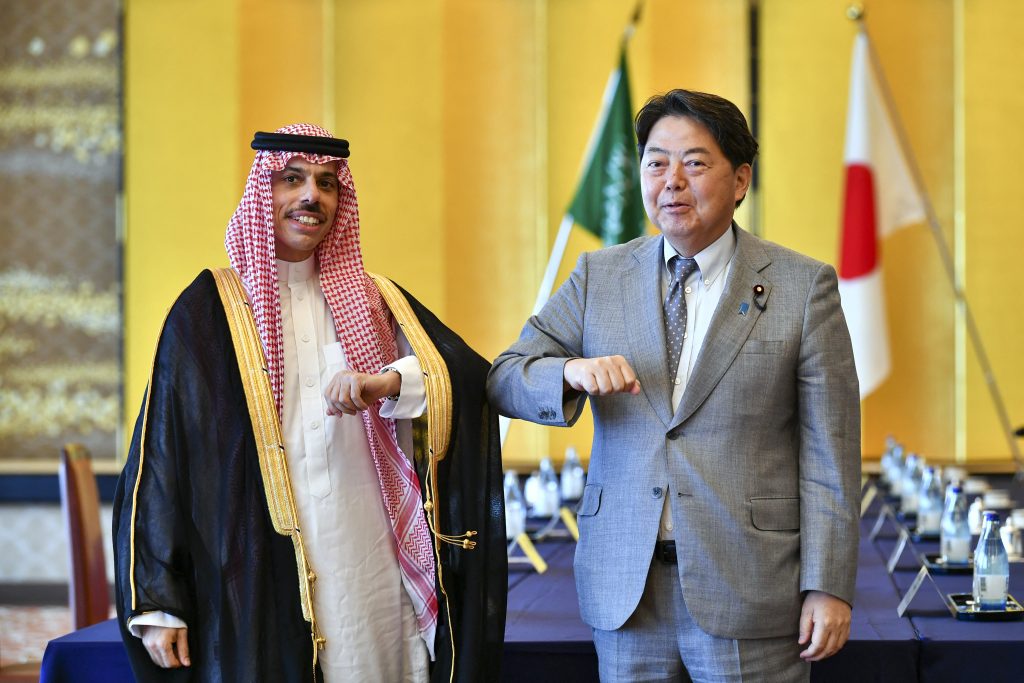
The foreign ministers of Saudi Arabia and Japan greet each other. (Supplied)
He added that all the participants in the Jeddah Security and Development Summit were focused on joint cooperation as well as on bolstering their capacities for self-defense.
On the question of Saudi Arabia’s engagement with Iran, Prince Faisal said: “We are committed to engage with Iran because we believe very strongly that Iran — if it decided to take a different path in the region and decided to engage positively with its neighbors and focus on its own development journey — can be a real partner in the region.”
He added: “Iran tells us it has no intention of developing nuclear weapons, but its behavior and its actions indicate otherwise. We see now activity that it announces that is not commensurate with a civilian nuclear program, whether it’s enrichment up to 60 percent or other technological developments.
“In the end, nuclear weapons capacity is the thing that is the most dangerous. Therefore, we are certainly hopeful that there can be a resolution through diplomatic means.”
Clarifying Riyadh’s policy vis-a-vis Moscow, Prince Faisal said: “Russia is an integral part of OPEC+, and without cooperation in OPEC+ as a collective, it would be impossible to properly ensure adequate supplies of oil to the international markets and the needs of energy.”
He explained that although Saudi Arabia had made its position on the war in Ukraine clear through its votes at the UN, “we do not feel that this precludes having a working relationship with Russia.”
With regard to Israel, Prince Farhan said the main obstacle to Saudi relations with the country was the unfinished business of “finding a pathway to a Palestinian state, a state with dignity, along the lines proposed in the 2002 Arab Peace Initiative.”
He warned that “as long as we are without a pathway to peace between the Palestinians and Israelis, we will remain in a situation where we have a source of tremendous instability in the region, something that empowers the extremists.”
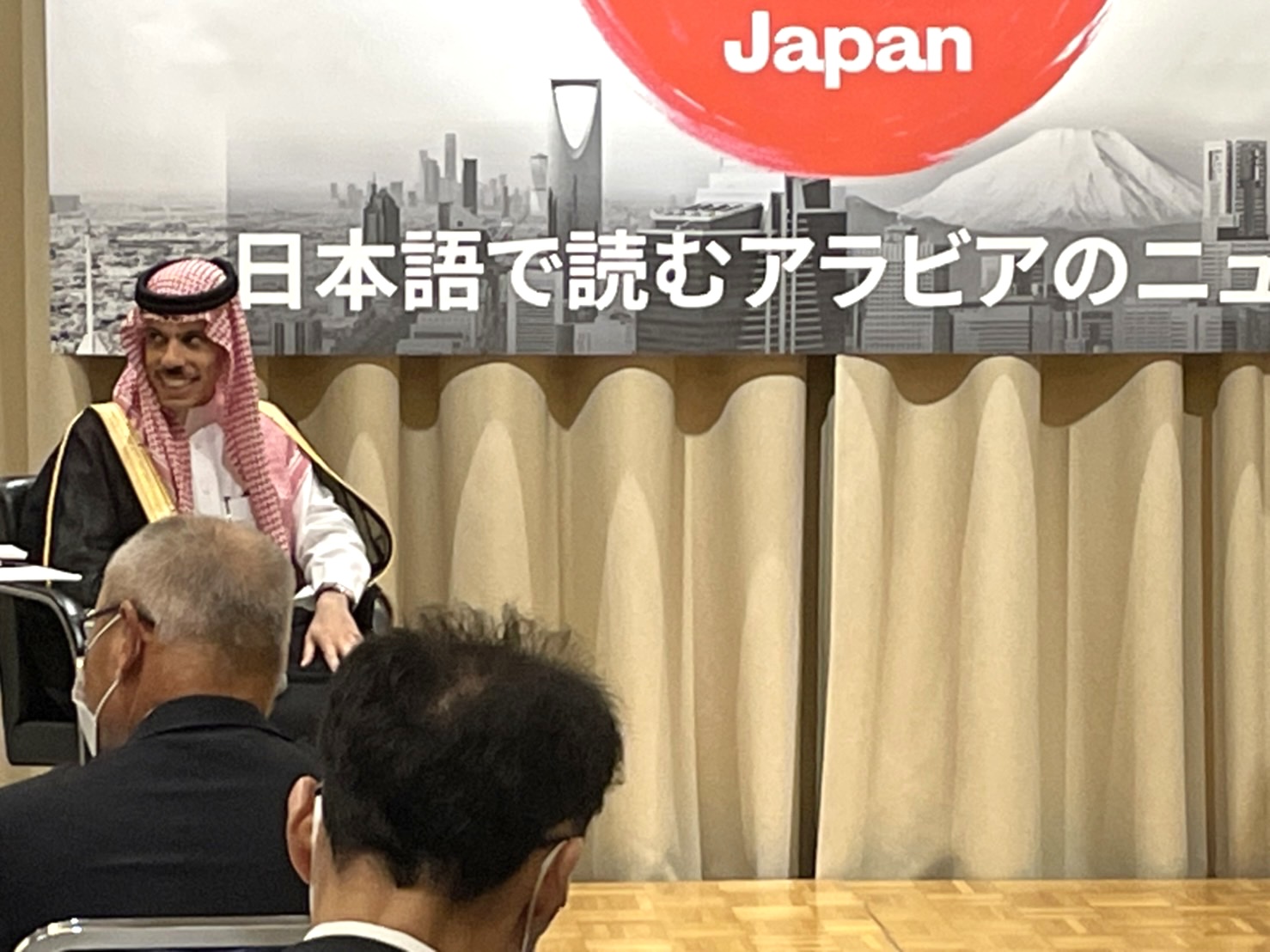
Saudi Minister of Foreign Affairs Prince Faisal bin Farhan participates in an Arab News Japan roundtable discussion on Tuesday in Tokyo. (Supplied)
Prince Faisal also talked about the reopening of Saudi Arabia to tourism after the pandemic.
“I’m happy to report the Kingdom is open for tourism,” he said, and pointed out that Japanese citizens can visit Saudi Arabia visa-free.
“We had a bit of a hiatus, but now we are back, and we are seeing millions of tourists come and visit the Kingdom.”
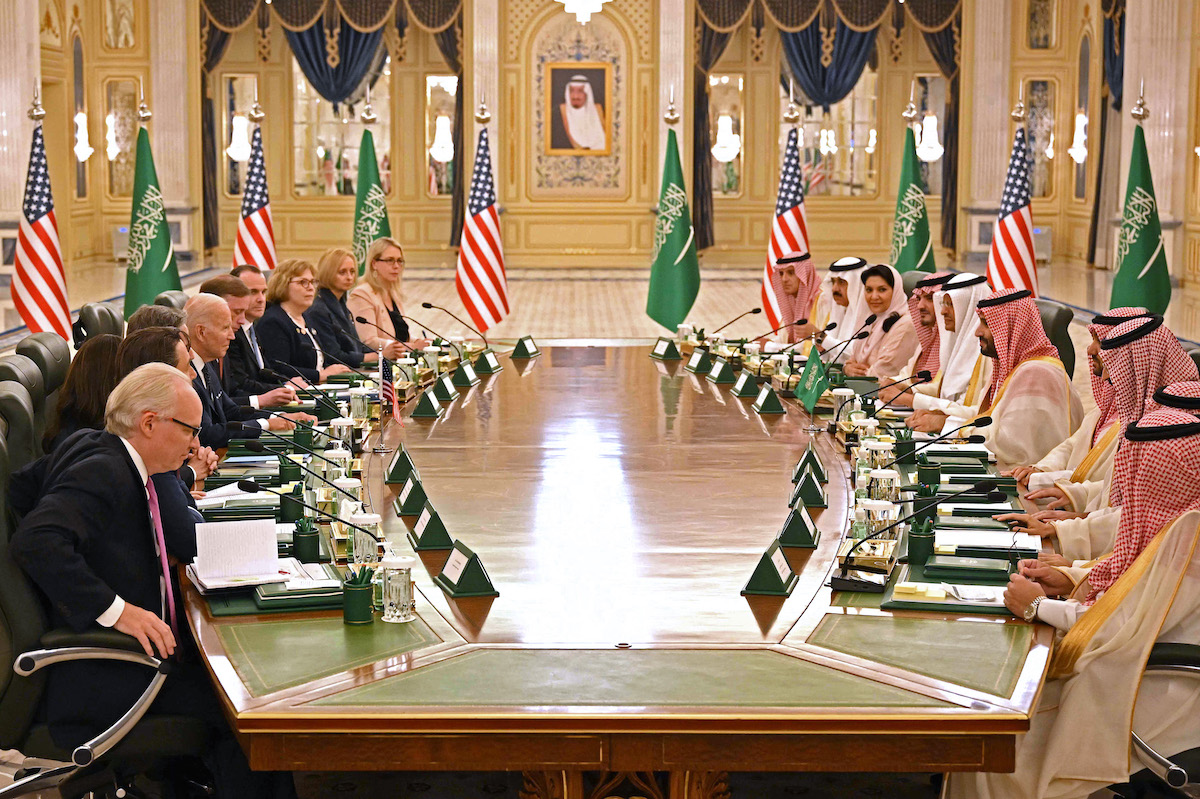
On Biden’s visit to Saudi Arabia, Prince Faisal reiterated Kingdom’s commitment to stabilizing global energy markets and transitioning to renewable energy. (Supplied)
Participants in Tuesday’s roundtable discussion included independent journalists and such Japanese news outlets as NHK, Jiji Press, Kyodo News, Asahi Shimbun and Nikkei Shimbun.
Also among those in attendance were Nayef Al-Fahadi, Saudi Arabia’s ambassador to Japan, and Iwai Fumio, ambassador of Japan to Saudi Arabia.



























